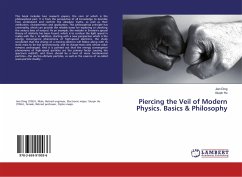This book illustrates, through examples, how philosophically erroneous mistakes in scientific fields can persist for decades or even centuries without being identified. In these examples, we observe that scientists, often perceived as the most knowledgeable individuals, can easily be swayed by 'simple, straightforward, and brilliant ideas' that offer aesthetically attractive solutions but ultimately result in various forms of false knowledge and incorrect practices. They may vehemently defend these ideas for a long time, primarily due to the lack of robust philosophical reasoning within the scientific community.Furthermore, the examples highlight how the weak philosophical capacity can lead to widespread ignorance of glaring mistakes or cause scientists in prominent positions to make simple logical errors typically associated with school pupils. In addition to discussing mistakes in mathematics, physics, and other scientific fields, this book also addresses the stagnant state of academia in philosophy and advocates for the establishment of a new professional community in philosophy.








